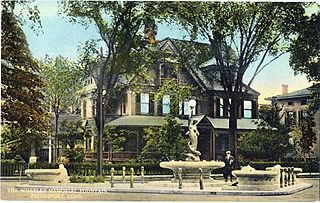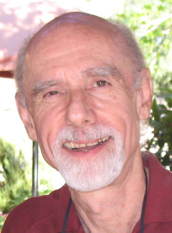
Genealogy is the study of families, family history, and the tracing of their lineages. Genealogists use oral interviews, historical records, genetic analysis, and other records to obtain information about a family and to demonstrate kinship and pedigrees of its members. The results are often displayed in charts or written as narratives. The field of family history is broader than genealogy, and covers not just lineage but also family and community history and biography.
Gustave Anjou was a self-professed genealogist who prepared hundreds of fraudulent pedigrees. His first name is sometimes spelled Gustav.
The American Society of Genealogists is the scholarly honorary society of the genealogical field. Founded by John Insley Coddington, Arthur Adams, and Meredith B. Colket, Jr., in December 1940, its membership is limited to 50 living fellows. ASG publishes The Genealogist, a scholarly journal of genealogical research semi-annually since 1980.

Thomas Hart Seymour was an American lawyer and Democratic Party politician who served as the 36th governor of Connecticut from 1850 to 1853 and as minister to Russia from 1853 to 1858. He was the leader of the peace settlement in the Democratic Party, and narrowly lost the April 1863 gubernatorial election.
Thomas Welles is the only person in Connecticut's history to hold all four top offices: governor, deputy governor, treasurer, and secretary. In 1639, he was elected as the first treasurer of the Colony of Connecticut, and from 1640 to 1649 served as the colony's secretary. In this capacity, he transcribed the Fundamental Orders into the official colony records on 14 January 1638, OS,. He was the magistrate during the first witch trials, the Hartford or Connecticut Witch Trials.
Archibald Fowler Bennett was a longtime employee of the Genealogical Society of Utah who was such a figure in the promotion of family history research in the Church of Jesus Christ of Latter-day Saints that he became known as "Mr. Genealogy".

Rollin Simmons Woodruff was an American politician and the 62nd governor of Connecticut.
Thomas Stanton (1616?–1677) was a trader and an accomplished interpreter and negotiator with Native Americans in the Connecticut Colony, one of the original settlers of Hartford. He was also one of four founders of Stonington, Connecticut, along with William Chesebrough, Thomas Miner, and Walter Palmer.

Joseph Walter Northrop (1860–1940) was an American architect.
The Society of Australian Genealogists (SAG) is an Australian-based non-profit organisation whose principal objective is the advancement of genealogical education.[1] The SAG is the oldest family history society in Australia and holds the largest genealogical archives and research library in the country. The head office, archives and research library are located in Sydney, New South Wales, Australia. The society membership numbers nearly 4,000 members world-wide.
Lieut. Joseph Judson was an early New England colonist best known for co-founding the town of Woodbury, Connecticut.
George Andrews Moriarty Jr. (1883–1968), called G. Andrews Moriarty in most of his published work, was an American genealogist from Newport, Rhode Island. He was born in Newport on February 14, 1883, the only son of George Andrews Moriarty and Mary Ann Sheffield. His ancestor, John Moriarty, emigrated from Ireland in 1777 and settled in Salem, Massachusetts. George attended St. George's School in Newport, and then did his undergraduate work at Harvard University where he earned an A.B. in 1905, cum laude. He then attended Christ Church College in Oxford, England where he specialized in historical studies, following which he returned to Harvard to earn an M.A. in 1907.

Eugene Cole Zubrinsky is an American genealogist focusing on colonial southern New England families. He is a Fellow of the American Society of Genealogists and lives in Ojai, California.
Samuel Orcutt was an American historian and genealogist. He is the author of many books on Connecticut towns and family histories. Orcutt also wrote a history called The Indians of the Housatonic and Naugatuck Valleys.

Isaac Stearns was an English emigrant who, on April 8, 1630, embarked from Yarmouth, England, aboard the ship Arbella. He was among the original settlers of the Massachusetts Bay Colony. Stearns was born c. 1598. He worked as a tailor and married Mary Barker on May 20, 1622, with whom he fathered eight children. His pedigree is unknown, and it is uncertain from where in England he came, but his wife was from the parish of Nayland, in Suffolk, and their first three children were born there.
Douglas Charles Richardson is an American genealogist, historian, lecturer, and author based in Salt Lake City in Utah. He has researched cases involving all periods of American research from colonial to the modern times. He has written extensively on the genealogy of medieval English gentry families and English royalty.
James Dent Walker of Washington, DC was a genealogist, researcher, lecturer, teacher, and archivist known for his research in African American genealogy. He has written and lectured extensively on black genealogy and consulted many historical and genealogical organizations.

The American Genealogist is a quarterly peer-reviewed academic journal which focuses on genealogy and family history. It was established by Donald Lines Jacobus in 1922 as the New Haven Genealogical Magazine. In July 1932 it was renamed The American Genealogist and New Haven Genealogical Magazine and the last part of the title was dropped in 1937, giving the journal its current title. All editors have been fellows of the American Society of Genealogists.

John Lee Comstock was an American surgeon and educator, who served as a surgeon in the War of 1812.







